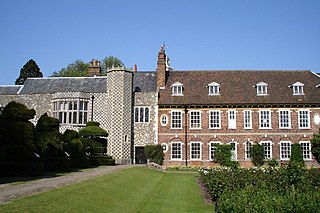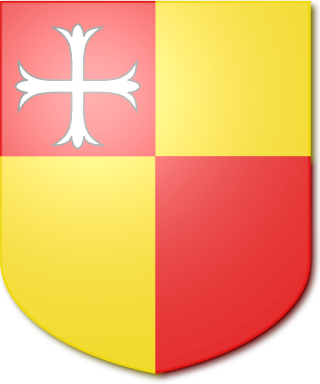
Sir Hugh Myddelton, 1st Baronet was a Welsh clothmaker, entrepreneur, mine-owner, goldsmith, banker and self-taught engineer. The spelling of his name is inconsistently reproduced, but Myddelton appears to be the earliest, and most consistently used in place names associated with him.

There have been five baronetcies created for persons with the surname Barker, three in the Baronetage of England, one in the Baronetage of Great Britain and one in the Baronetage of the United Kingdom. All five creations are extinct.
There have been eleven Gordon Baronetcies :
There have been ten baronetcies created for persons with the surname Browne, six in the Baronetage of Great Britain, three in the Baronetage of Ireland and one in the Baronetage of Nova Scotia. Only one creation is extant as of 2010. Three of the creations were for members of the Browne family headed by the Viscount Montagu.

There have been six baronetcies created for persons with the surname Smyth, two in the Baronetage of England, one in the Baronetage of Great Britain, one in the Baronetage of Ireland and two in the Baronetage of the United Kingdom. One creation is extant as of 2010.
Nineteen baronetcies have been created for persons with the surname Hamilton, eight in the Baronetage of Nova Scotia, one in the Baronetage of England, five in the Baronetage of Ireland, one in the Baronetage of Great Britain and four in the Baronetage of the United Kingdom. As of 2008 two creations are extant, two are dormant, two are either extinct or dormant and twelve extinct.

There have been three Evelyn Baronetcies, two in the Baronetage of England and one in the Baronetage of Great Britain. These are shown individually below in order of creation. The three families are closely related[usurped] and made their money out of gunpowder.

There have been two Baronetcies created for persons with the surname Austen, one in the Baronetage of England and one in the Baronetage of Great Britain. Both creations are extinct.
There have been five baronetcies created for people with the surname Napier, three in the Baronetage of England, one in the Baronetage of Nova Scotia and one in the Baronetage of the United Kingdom. As of 2014 two of the creations are extant.
There have been five Baronetcies created for people with the surname Forbes, four in the Baronetage of Nova Scotia and one in the Baronetage of the United Kingdom. The first holder of the Burn Baronetcy of Jessfield, created in the Baronetage of the United Kingdom in 1923, assumed the surname of Forbes-Leith of Fyvie in 1925.

There have been twenty one baronetcies created for persons with the surname Williams, eight in the Baronetage of England, three in the Baronetage of Great Britain and ten in the Baronetage of the United Kingdom. Only six of the creations are extant as of 2017.
The Douglas of Glenbervie, Kincardine Baronetcy was created on 28 May 1625 in the Baronetage of Nova Scotia.
There have been four baronetcies created for persons with the surname Willoughby, three in the Baronetage of England and one in the Baronetage of Great Britain. One creation is extant as of 2008.

Sir Richard Myddelton, 3rd Baronet, of Chirk Castle, Denbighshire, was a Welsh landowner and Tory politician who sat in the House of Commons from 1685 to 1716.

The Myddelton Baronetcy, of Chirke in the County of Denbigh, was a title in the Baronetage of England. It was created on 4 July 1660 for Thomas Myddelton, Member of Parliament for Flint, Montgomery and Denbighshire. He was the son of the politician and Parliamentary general Sir Thomas Myddelton and the grandson of Sir Thomas Myddelton, Lord Mayor of London in 1613. The second and third Baronets represented Denbighshire in the House of Commons. The title became extinct on the death of the fourth Baronet in 1718.
There have been two baronetcies created people named Bolles, one in the Baronetage of England and one in the Baronetage of Nova Scotia.

There have been three baronetcies created for persons with the surname Meredith, one in the Baronetage of England, one in the Baronetage of Nova Scotia and one in the Baronetage of the United Kingdom. Two of the creations are extinct while one is dormant.

The Myddelton family were substantial landowners and benefactors in and around Denbigh in the north-east of Wales. As landowners and members of parliament, a number of its members were elevated to the baronetcy. For several generations, the family were governors of Denbigh Castle and owned Chirk Castle well into the 20th century.

The Middleton Baronetcy, of Belsay Castle in the County of Northumberland, was created in the Baronetage of England on 24 October 1662 for William Middleton, of Belsay Castle, Belsay, Northumberland. The Middletons were descended from Richard Middleton who was Lord Chancellor to Henry III. His grandson Sir Gilbert Middleton took part in a rebellion against Edward II. He was captured and executed. The Middleton estates including Belsay were forfeited to the Crown but were restored to the family by marriage in the reign of Edward III. Sir John Middleton was a fervent Yorkist in the 15th century and fought at the Battles of St Albans in 1455 and Bosworth in 1485. The third, fifth and sixth Baronets all sat as Member of Parliament for Northumberland. The sixth Baronet assumed in 1799 by Royal sign-manual the surname of Monck in lieu of his patronymic, according to the will of his maternal grandfather Lawrence Monck. The seventh Baronet, who represented Durham in Parliament, resumed the use of the surname of Middleton.

The Middleton Baronetcy, of Hackney in the County of Middlesex, was created in the Baronetage of England on 6 December 1681 for Hugh Middleton. The title became extinct on his death in 1702.











